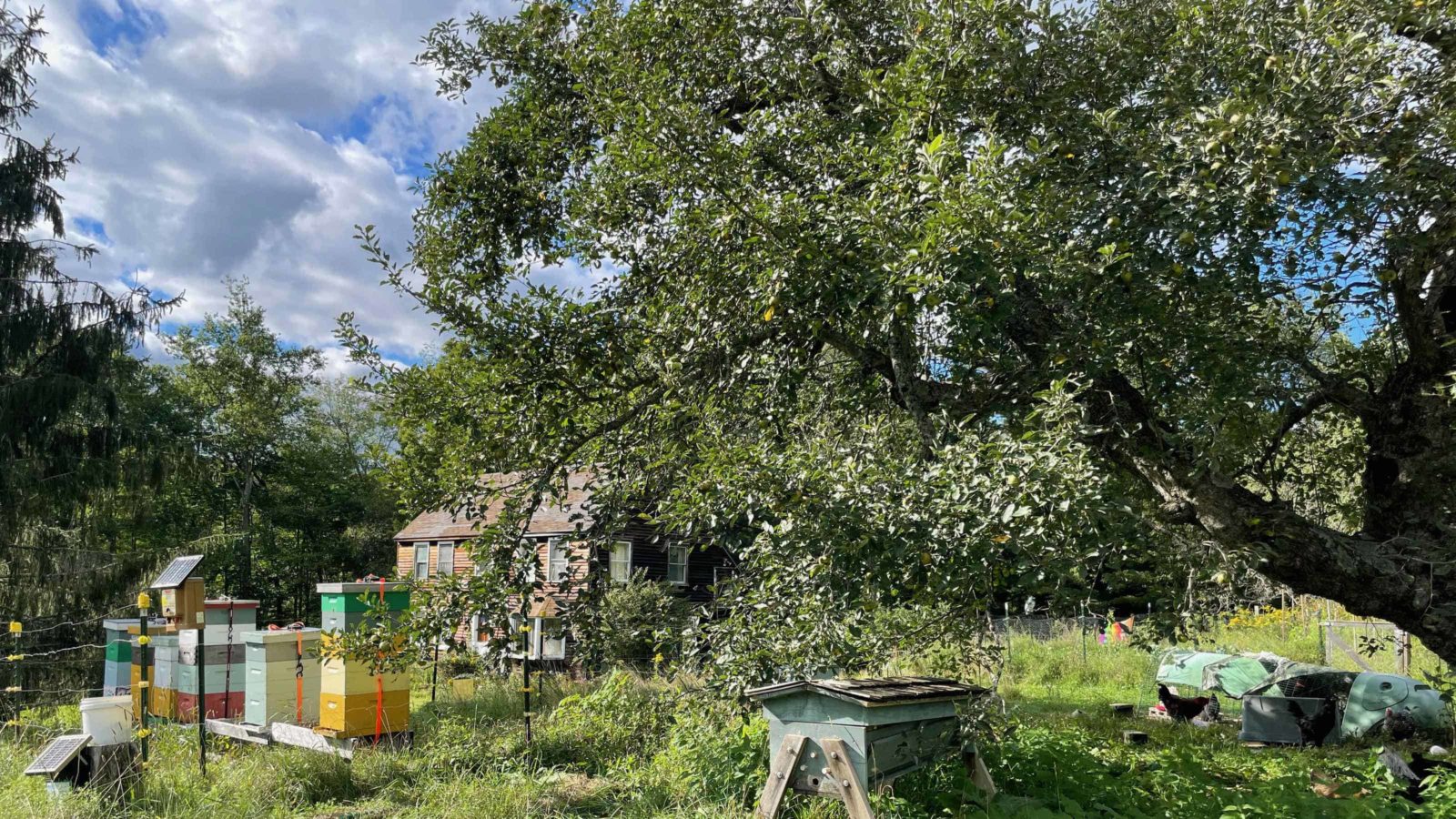Bees are circling the hives on the hill. On a branch 20 feet up they’re clustering in a dark gold pod — a single solid orb more than a foot across. Kristen Tool is watching them swarm. She’s wholly safe — the bees have no interest in people right now. They only want to find a new home. They’re paying no attention to the dog barking at a scent or the young roosters in the grass by the coop.
Tool and her husband, Chris Wheeler, keep six hives near a massive apple tree that has lived here, like his family, for a hundred years. Four years ago the two of them came back to Olsen Farm in Lanesborough near Balance Rock and Pontoosuc Lake, where Chris was raised, and they are working to build contemporary ways to support their family farm — and food systems and food security in the Berkshires at the same time.
For two years, they have run a food distribution program, raising funds to give CSA shares to local seniors. Tool and Wheeler seeded the program in the pandemic, and it is putting down roots — this summer it has grown to involve farms nearby.
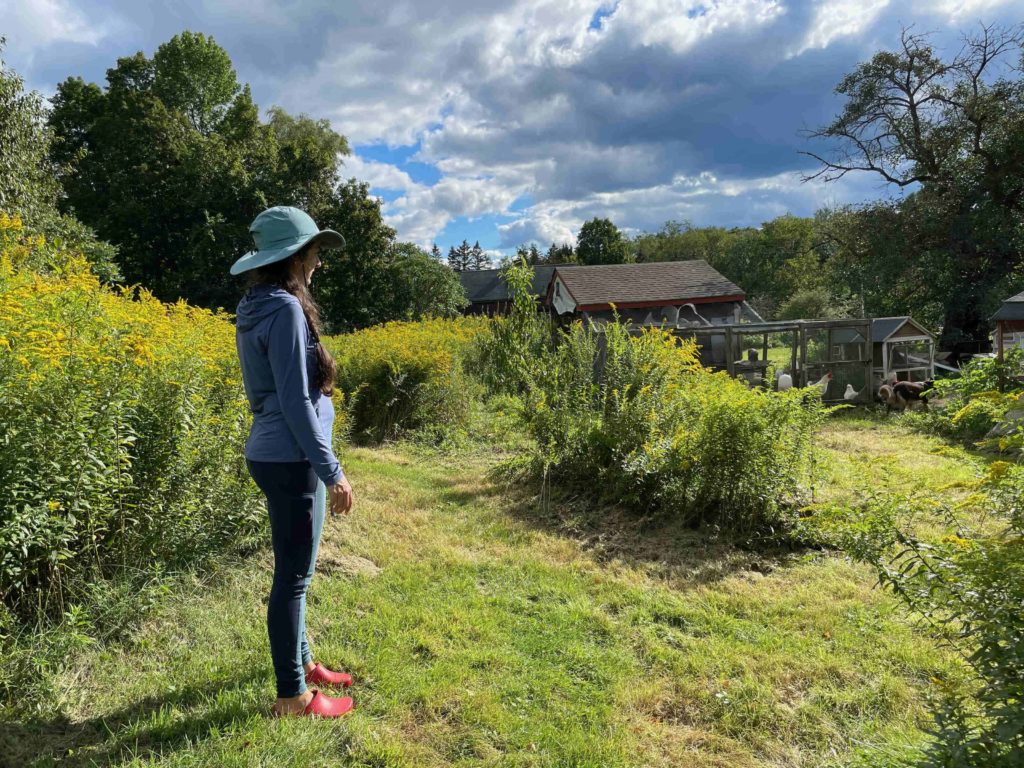
Kristen Tool looks out over the fields at Olsen Farm in Lanesborough.
This time of year, they offer their own vegetables and fruit — tomatoes, onions, basil and squashes — with vegetables from Holiday Brook Farm in Dalton and Windy Ridge Farm in Hawley, flowers from Second Drop Farm in Lanesborough and mushrooms from Mycoterra Farm in Deerfield.
The idea began in conversation with the local Council on Aging, Tool said. Since the pandemic hit, many elders in the community have not been able to leave home safely to shop for local food, and often they are limited in what they can afford. Toole first suggested a community garden at the town hall where the community could volunteer and bring vegetables home, but she came to feel the physical work would be a challenge for many of the seniors she wants to serve.
When Covid hit, she said, the COA had to suspend their usual luncheon program, and options like Meals on Wheels do not always involve fresh, locally grown food. As the pandemic kept people indoors and isolated, she saw the need to deliver the produce Olsen Farm grows to people’s homes.
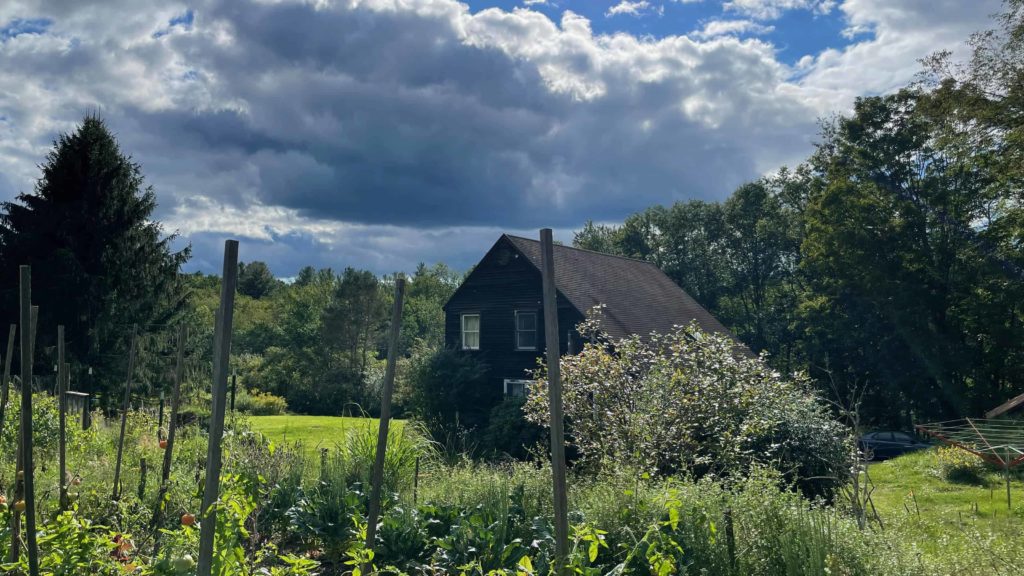
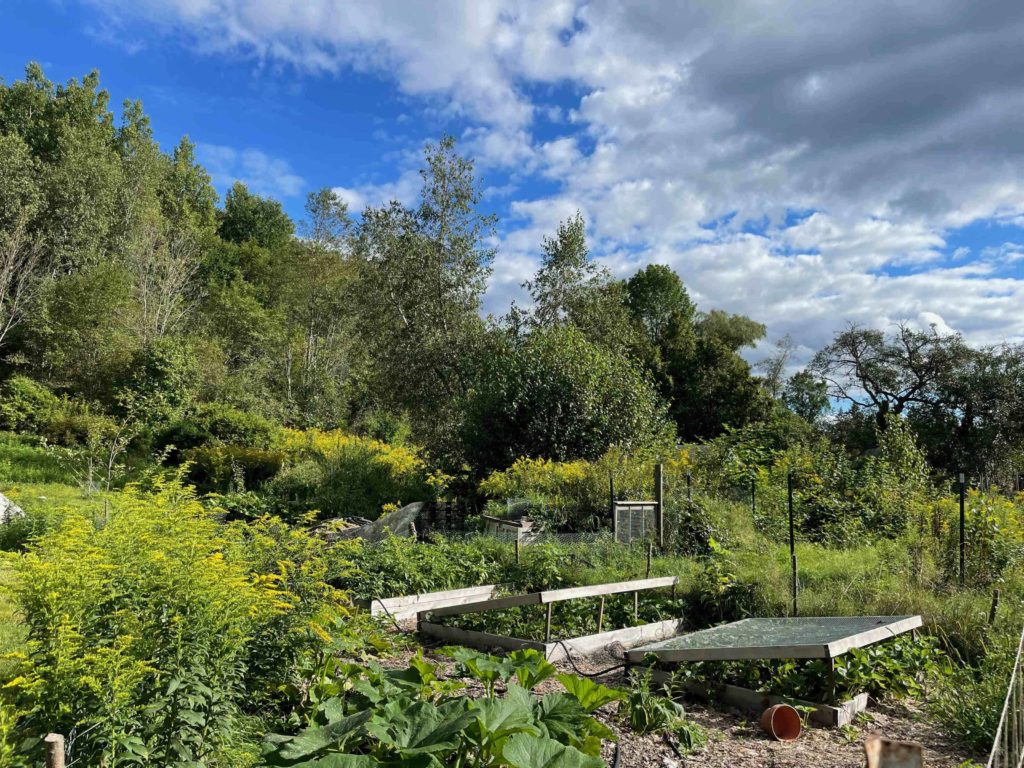
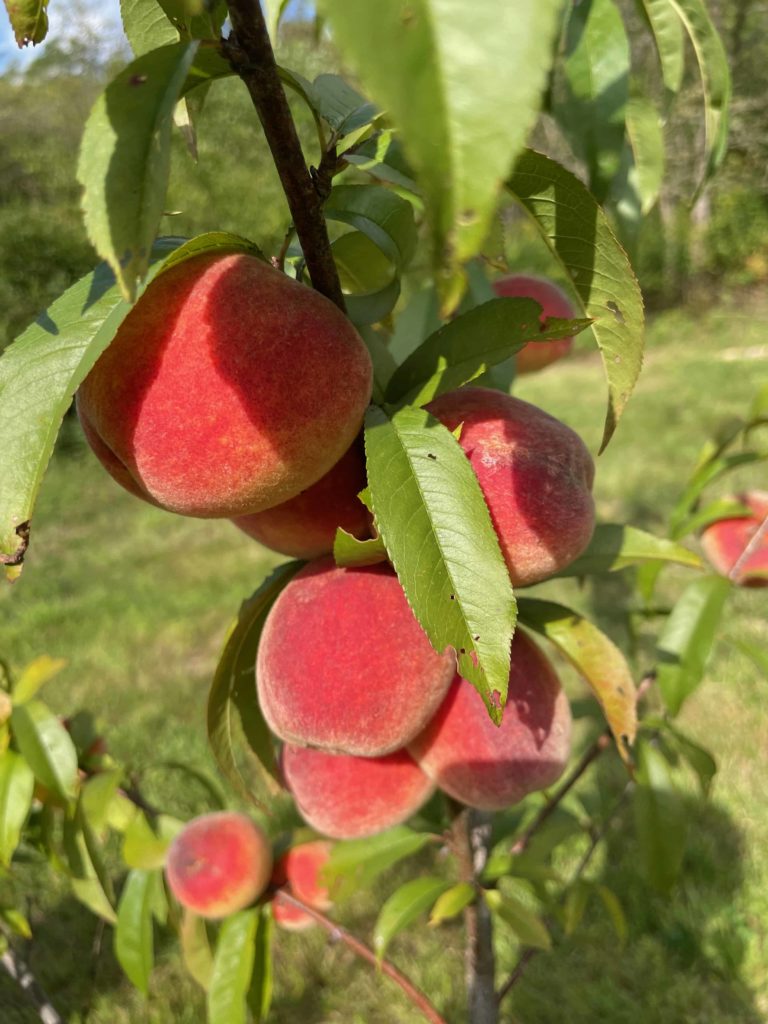
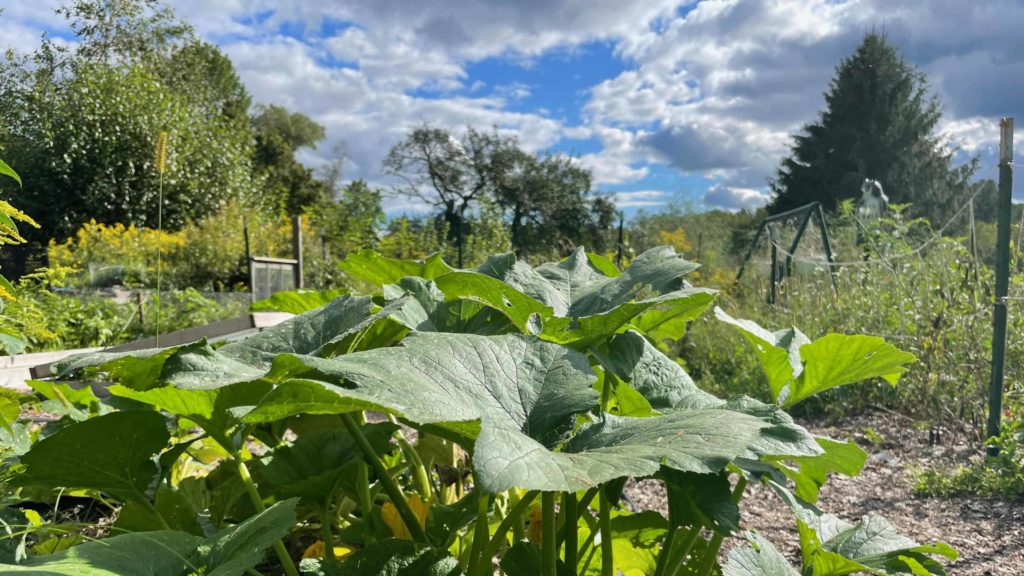
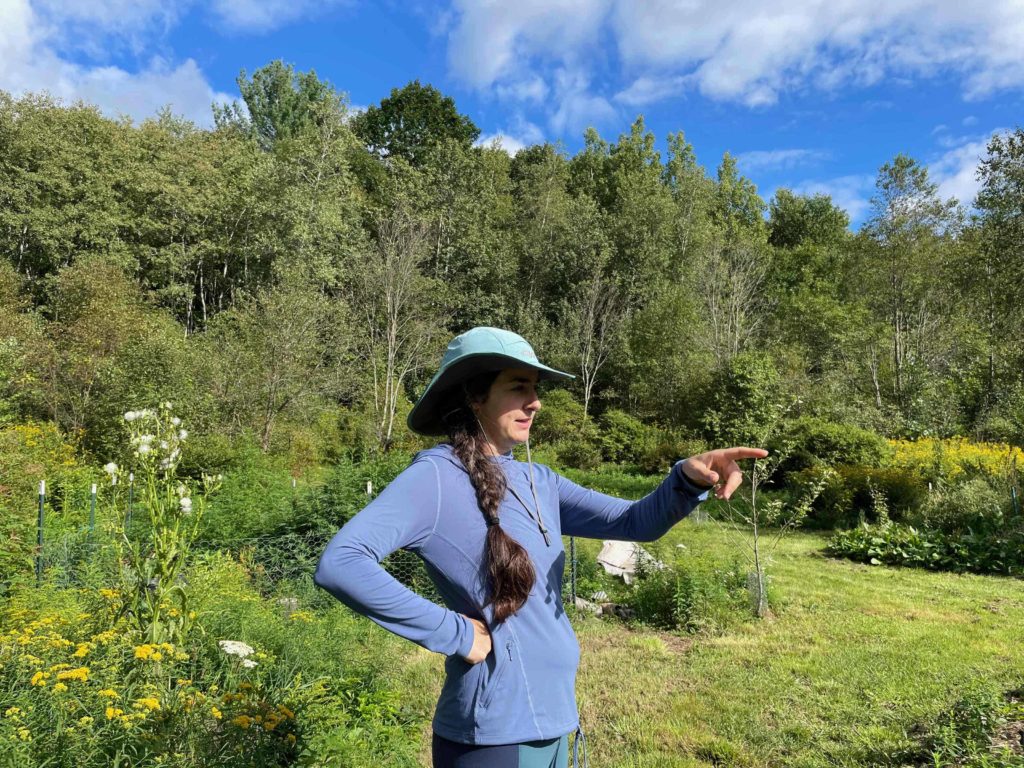
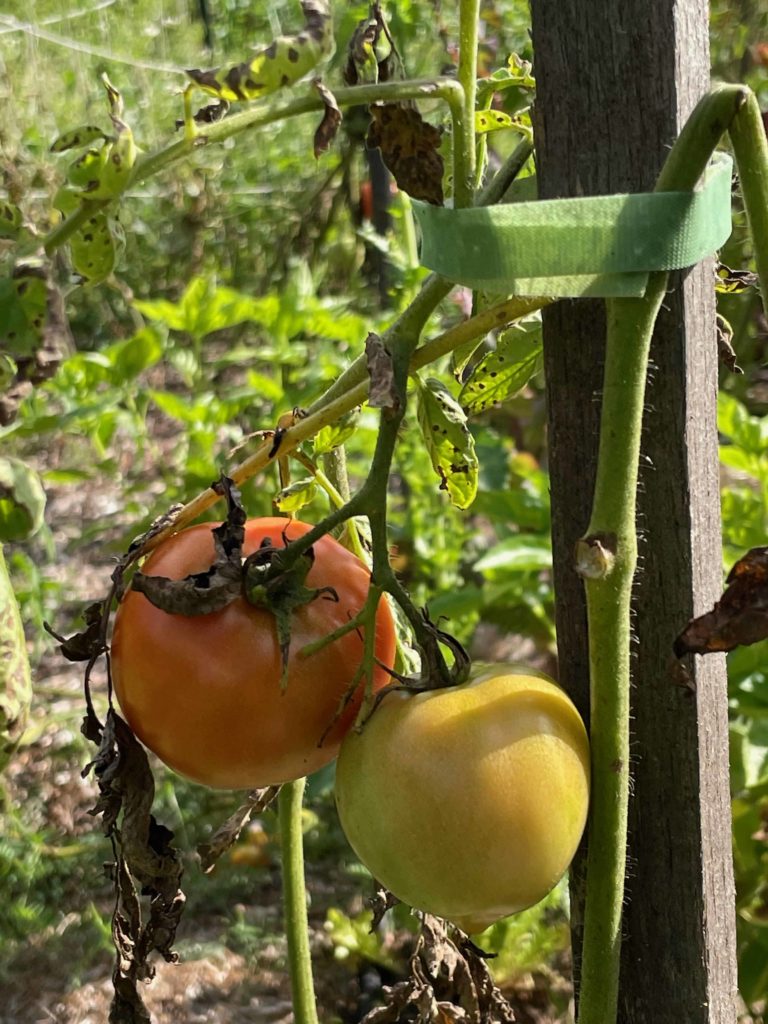
Tool and Wheeler worked with Linda Pryne at the COA to find local people who might want to be a part of the new program. They set up a delivery route, Tool said, and this summer she delivers to 12 homes each week and brings six to eight portions to the COA luncheon as well.
After their first experimental summer, they set out to make the program sustainable in the longterm. In fall 2020 they joined EforAll, an entrepreneurial program working with fledgling businesses across the state and in the Berkshires. Tool and Wheeler took the cold season to develop a plan and structure and began local fundraising, and by the beginning of this growing season, they had raised enough to cover 12 weeks.
In these early years, they have run only in the summer and early fall, while they have fresh food in the garden. But Holiday Brook Farm has a commercial kitchen, and that would let them continue into the cold season with foods they can make and freeze. It helps too when she has an abundance of something, like end-of-season squash. She hesitates to give a 10-pound butternut to one person living alone, but if she can make soup, she can share it out.
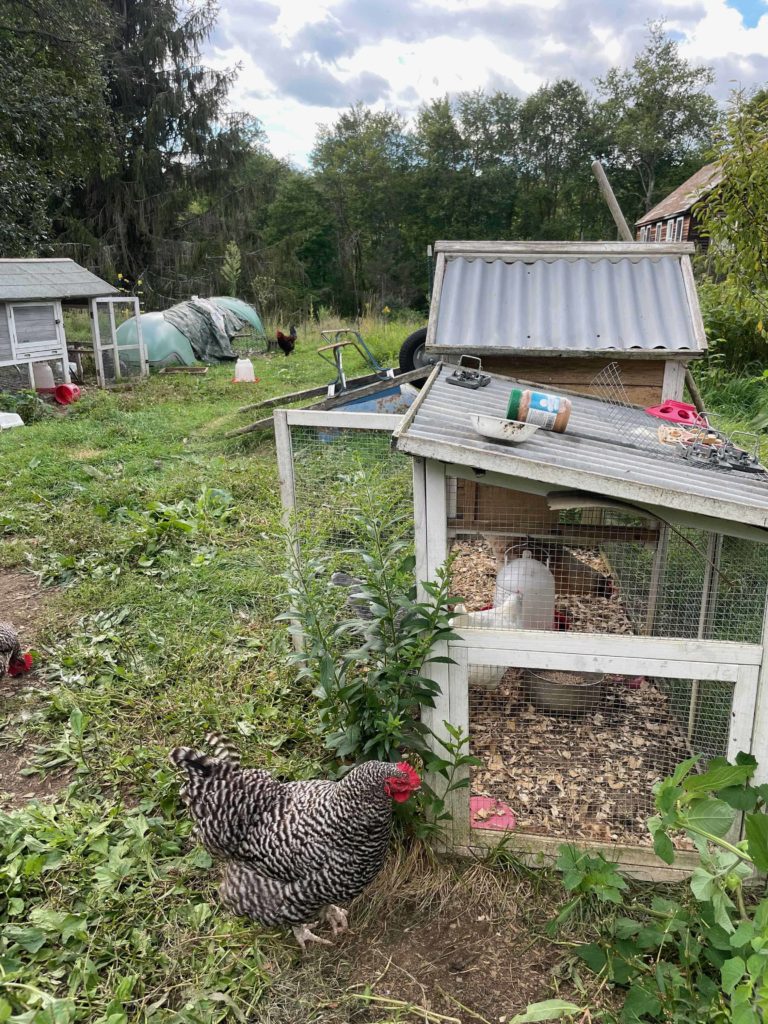
Chickens scratch in the grass around the coop at Olsen Farm in Lanesborough.
She is careful to be clear that giving food to local families does not mean this system has no cost.
Local farms already give away a great deal of what they raise to local food pantries and soup kitchens, she said. She understands the impulse and the generosity — and at the same time, the farmers have to sustain themselves.
“There’s this idea that farmers should just grow everything and give it away,” she said. “But farmers already don’t make any money. We need to pay farmers for their produce, because it’s work — it’s hard work, and to keep farming you have to have funds. There’s a trend of burnout and suicide because there are no support systems for farmers. … Every farmer feels like they’re doing too much.”
She wants to set up her program in ways that give farmers an assurance of income and build in resilience, she said, so that in a summer like this one, when June breaks records for heat and July breaks records for rain, the farmers, they can be sure of having enough produce and enough variety to go around. It evens out the natural system.
While the farm itself runs as a for-profit business, they are incorporating a nonprofit, Heart and Soil, to run the food distribution program. They are taking care in the structure and relationship of the two, Tool said. The nonprofit will run independently of their farm, and they will not sit on the board.
“We’re hoping to set up a model other towns can follow,” she said. “Twenty years down the road, we’d love to see that, with local farms in each town.”
She and her husband know first-hand that community support can come through, in hard times. Wheeler grew up here on the farm. His great grandparents bought the land in the 1920s, she said, and an old farmhouse built in the 1790s. They had come from Norway to New York City and then to the country, and their children stayed; Wheeler’s father built a new house on the land in the 1980s.
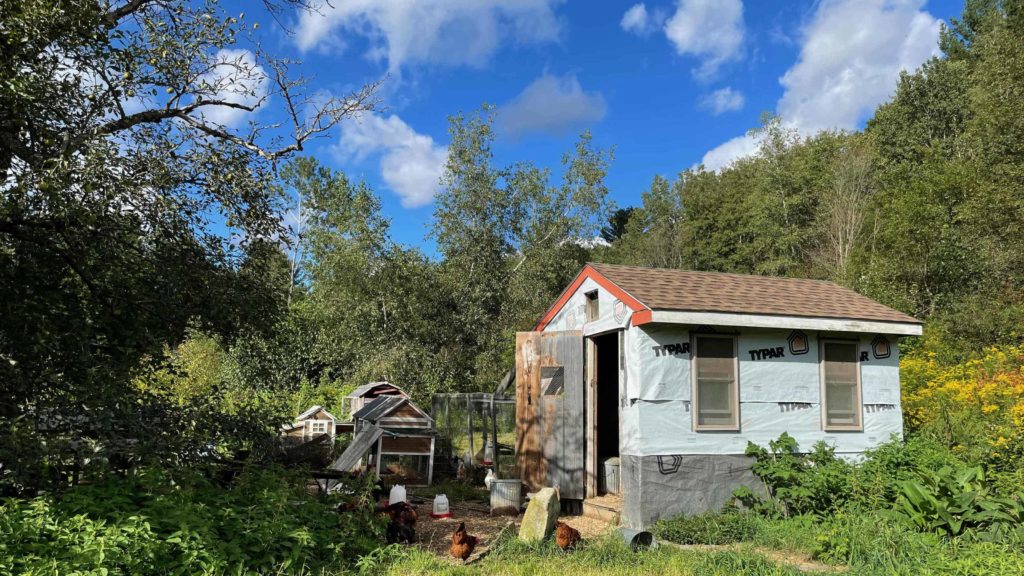
Chickens scratch in the grass around the coop at Olsen Farm in Lanesborough.
Four years ago, his father died suddenly, and Chris wanted to stay too. But to buy out his siblings and keep the farm from being developed, he and his wife needed more than $280,000. With the help of friends and neighbors, they have raised enough to keep the farm, the house and the land. They have 30 acres, Tool said, between the farm and the fields, the woods and the brook.
“This is our home,” she said, “and this is open land, and it needs to stay that way.”
As they settle in, they have begun experimenting. She shows the young fruit trees they have planted along the edge of the meadow — peach, plum, pawpaw — and strawberry beds and raspberries, and a three sisters garden bed with corn and delicata squash. They have held workshops on beekeeping and more, and she wants to expand them, so people who want to can learn to grow their own food.
“We would love to have a program like Soul Fire Farm,” she said. “They help families to build raised beds, and they offer knowledge and resources to teach people.”
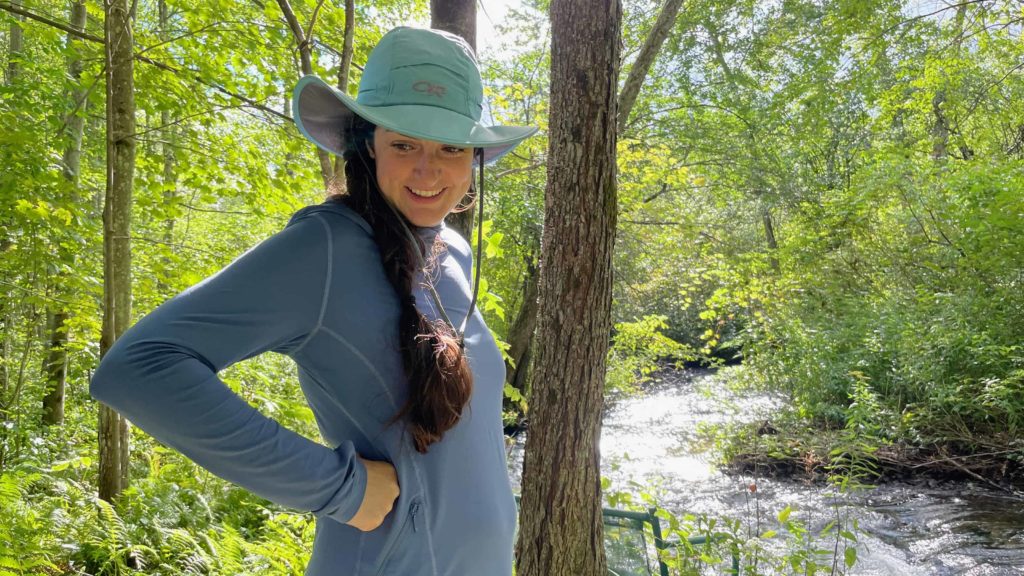
Kristen Tool smiles at her dog along the banks of the brook below Olsen Farm.
This summer they are brining their honey to sell at Second Drop Farm, where Patrick Elliott and his family grow zinnias and run a farm stand along Route 7.
And they keep chickens for eggs, she said, introducing Sir Mix-a-lot, their half bantam, half silkie head rooster with dark iridescent feathers. They hatched their own eggs this year, she said, some in an incubator, so they could see the chicks hatch, and now, at six to seven months old, the young hens have just started laying. She has a weekly egg delivery route for half a dozen people.
The chickens are searching in the grass in the afternoon sun. She looks up at the branch where the bees have been clustering around their queen, while scouts head out to look for a new place to set up a new hive. The branch is empty — in these few minutes of conversation, the bees have headed across the field of goldenrod and into the woods on the hill, where she and her husband have heard a young great horned owl calling, these last few nights.
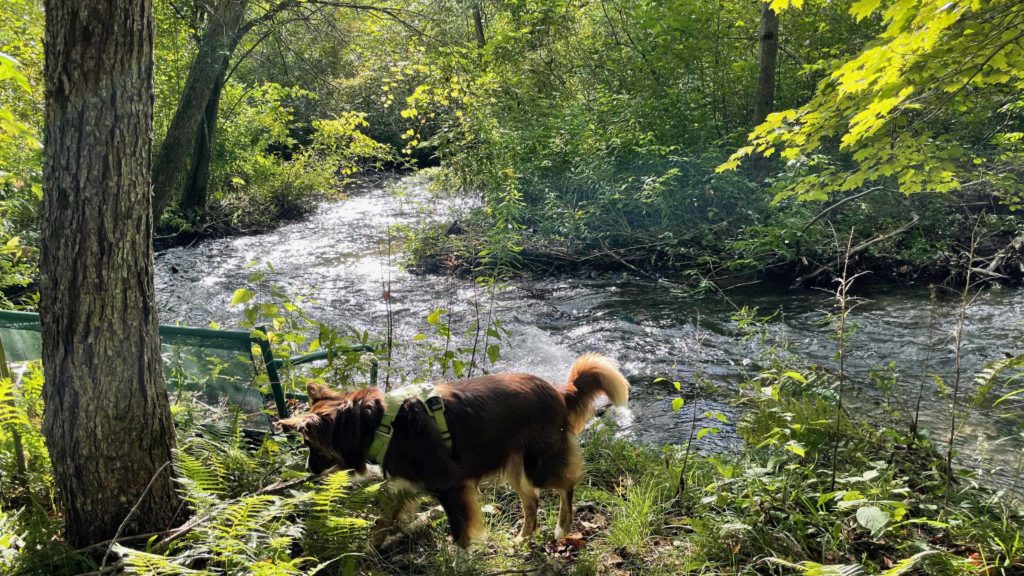
Kristen Tool's dog explores along the banks of the brook below Olsen Farm.

